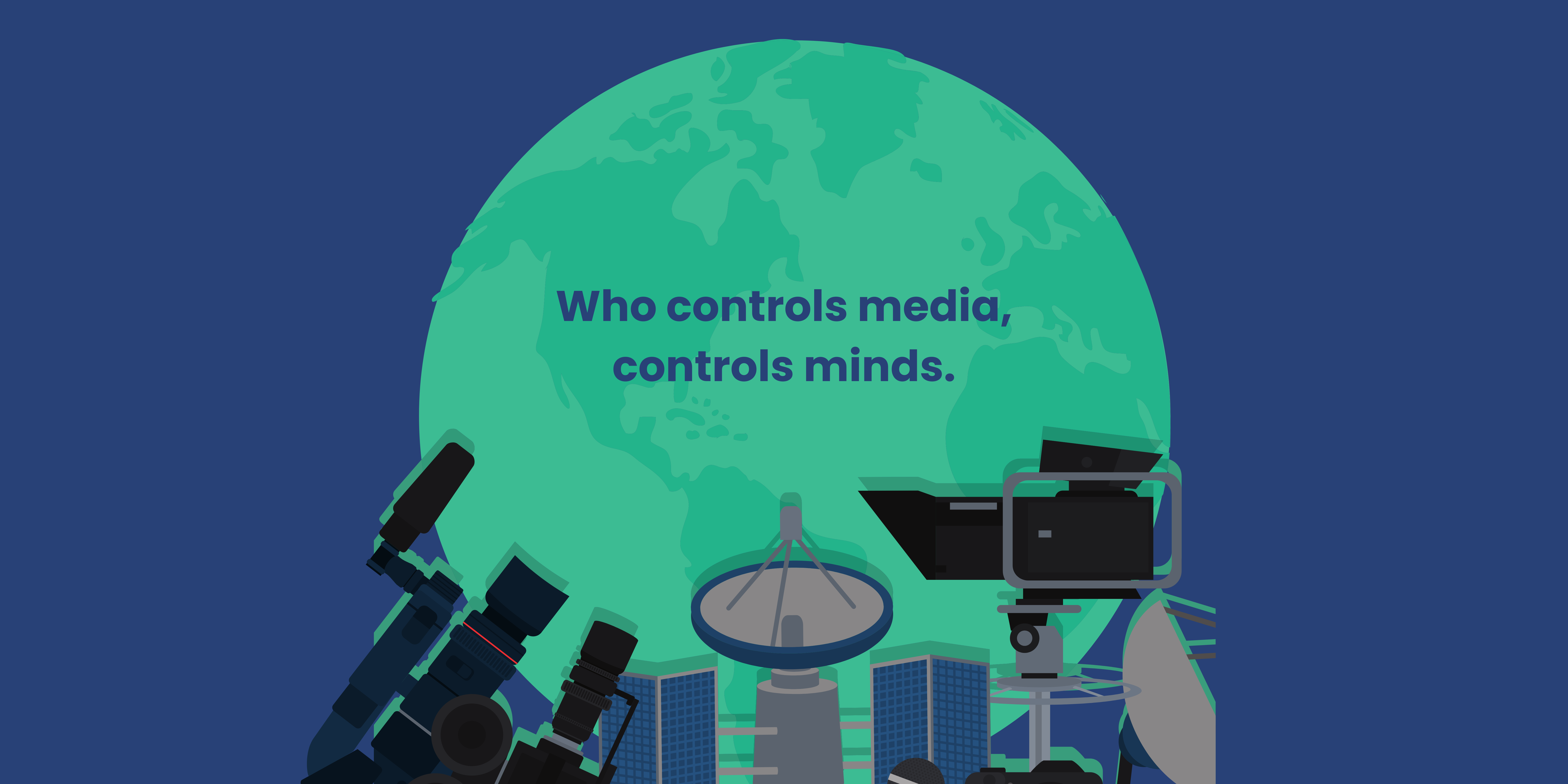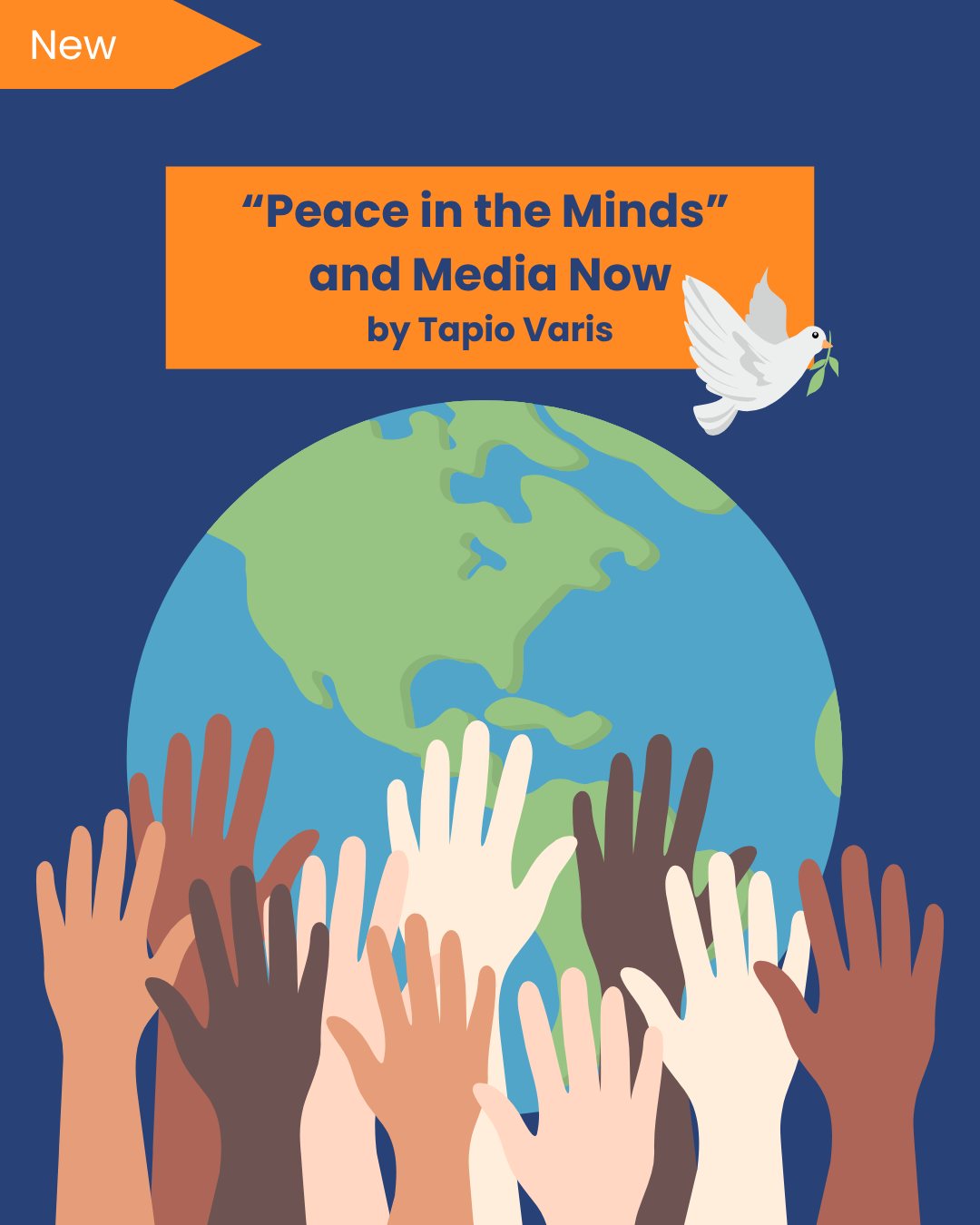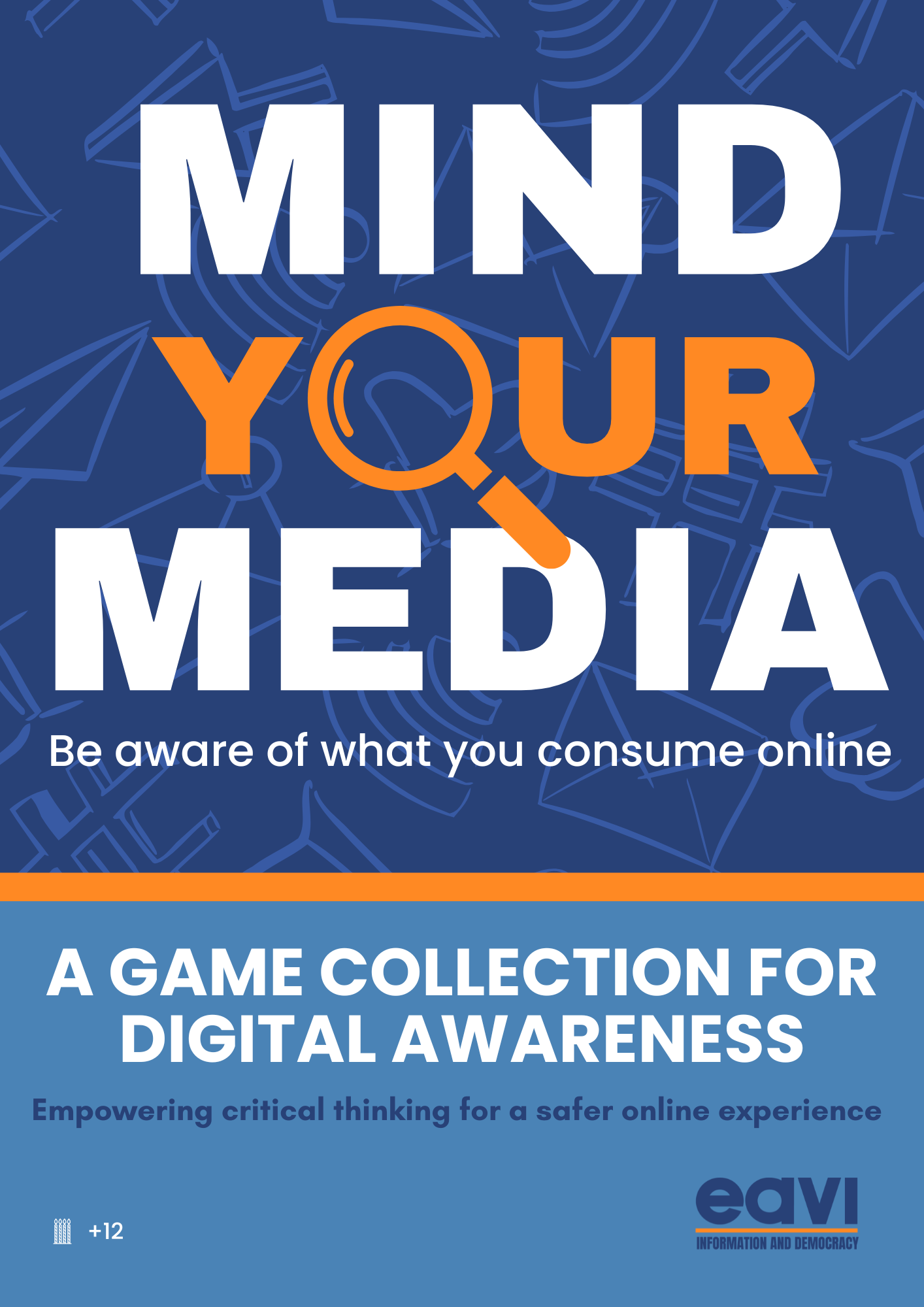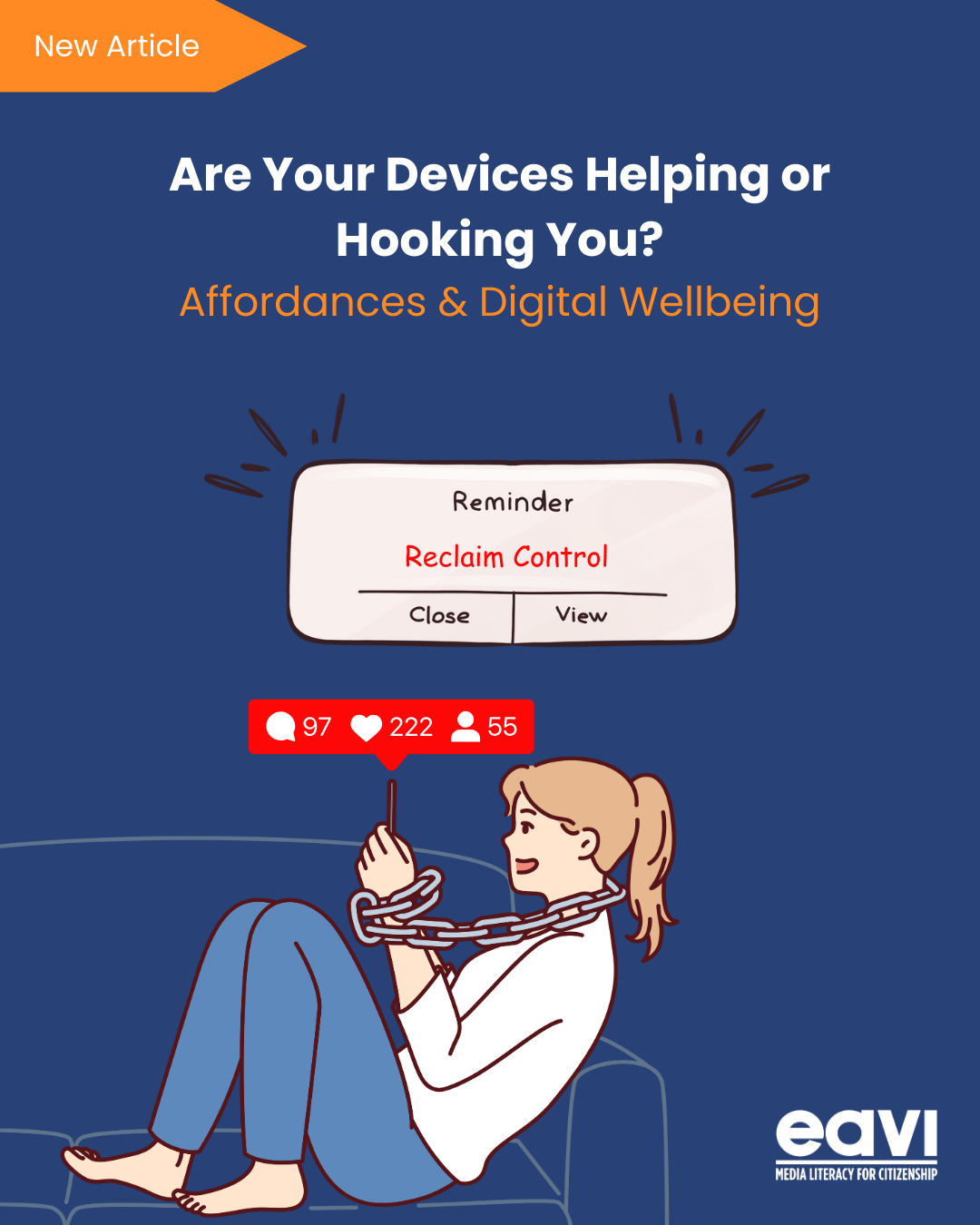
At some point, we’ve all stumbled upon a wild social media post—something along the lines of “The EU is planning to tax people for excessive breathing!” The comment section? A chaotic mix of outrage, panic, and elaborate conspiracy theories about shadowy government plots. Only when a sharp-eyed user points out that the “source” is a joke website does the uproar settle, though not before a few people announce their plans to flee to the mountains to escape the so-called tyranny.
In an age where deepfakes can make politicians say things they never said and where billionaires casually buy entire news empires, how do we even know what’s true anymore?
Enter the European Media Freedom Act (EMFA): the EU’s attempt to safeguard journalism from commercial and political influence, aiming to ensure that the news we consume is based on facts rather than manufactured narratives.
What Is the European Media Freedom Act & Why Should We Care About It?
Think of it as the media world’s equivalent of a smoke alarm. You don’t think about it every day, but when things start to go up in flames, like a journalist being silenced or a government exerting pressure on public broadcasters, you’ll be glad it’s there. The EMFA wants to ensure that journalists can work without political interference, public service media remains independent, and media ownership is transparent.
Here’s how this European law translates to everyday life:
- Your News Won’t Be Dictated by Governments: If a government is spending taxpayer money on a golden statue of their leader, journalists can report on it without fearing a sudden “technical error” on their website.
- Your Personal Data Stays Private: The Act prohibits the use of spyware against journalists, ensuring that investigative reporters and their sources are protected from being snooped on.
- No Monopoly on Information: The law regulates media ownership to prevent a handful of powerful individuals from controlling public narratives (yes, we’re talking about media moguls who own everything from newspapers to fashion magazines to pet food brands).
In short, the EMFA fights against media manipulation and ensures that when you open your news app, what you read is more based on reality rather than politically motivated distortions.
Why This Matters in Your Daily Digital Life
You might think: “I don’t work in media, so how does this affect me?” Well, let’s test that.
Have you ever:
- Shared a headline without reading the article?
- Debated current affairs using information you saw in a meme?
- Wondered why certain news topics seem to disappear overnight. (Case in point, the disappearance of news about the recent US nationwide protests)
You realised it yourself by now, but you’re already part of the media landscape. The Media Freedom Act ties directly to media literacy and digital citizenship, which is essentially about consuming information responsibly and recognizing misinformation when you see it.
Take our dear friend, Pierre. Pierre sees a post on social media that says, “The EU will ban home gardening by 2025!” Outraged, he immediately shares it. Within minutes, his friends are discussing how they will smuggle basil plants past “the authorities.” Later, Pierre discovers that the original post was a spoof. But the damage is done.
The EMFA aims to ensure media outlets maintain high standards at the source of news production, but media literacy remains a crucial skill for all citizens at the other end of receiving news.
Here’s how to be a smart digital citizen:
- Check the Source: If a news article comes from “realnews-now-definitely-legit.eu,” take a second look.
- Fact-Check Before Sharing: If something sounds too outrageous to be true, it probably is. Stop, think and verify before you hit “share.”
- Understand Media Ownership: If one media outlet insists that a particular politician is the nation’s savior while another calls them an international embarrassment, check who owns these publications, and you will understand the reason for such propaganda.
- Diversify Your News Sources: Relying on just one news source is like eating only cheese and calling it a balanced diet. Expand your intake.
Media Freedom & Your Right to Speak Up
Digital citizenship isn’t just about consuming media critically; it’s also about protecting the right to free expression. Imagine you post a tweet questioning a government policy, and within hours, it’s flagged, removed, and your account is restricted. Meanwhile, an official narrative opposing your viewpoint dominates the news cycle.
The EMFA seeks to prevent such forms of media suppression. It strengthens protections for investigative journalists and ensures that public service media is not turned into a state-controlled mouthpiece.
But legal protections alone are not enough. As citizens, we also play a role in maintaining media freedom:
- Support independent journalism: Subscribe to credible news platforms that uphold high journalistic standards. (Yes, paying for news feels painful, but sometimes it is worth it. Just like good quality food, quality journalism requires money.)
- Engage critically on social media: Rather than spreading misinformation, contribute to informed discussions. Raise questions about its authenticity and correctness.
- Stay informed about digital rights: We know nobody reads privacy policies (they are purposely designed to make you skip them), but one can always try and advocate for stronger protections against online surveillance.
What Happens If We Ignore Media Freedom?
If we let media freedom erode, here’s what we get:
- News that’s more biased than your grandma judging a baking competition between you and your cousin.
- Public broadcasters that function as government megaphones instead of independent sources of news.
- Investigative journalists facing harassment or worse for exposing corruption.
In short, we lose, and bad actors win. Without media freedom, societies risk becoming environments where the government or private interests dictate “official truth,” leaving little room for independent scrutiny.
Resources:
1. EU DisinfoLab – Tracks and exposes disinformation campaigns in Europe.
2. EUfactcheck.eu – EUFACTCHECK is the fact-checking project of the European Journalism Training Association (EJTA) that supports journalism schools to build and execute a sustainable curriculum unit on fact-checking, grounded in a European network.
3. Snopes – One of the oldest and most reliable fact-checking websites.
4. Full Fact – A UK-based fact-checking website that verifies claims made by politicians and media.
5. Media Smart – A UK-based platform helping young people think critically about advertising and social media influence.
6. Common Sense Media – A US-based nonprofit providing digital citizenship resources for families, educators, and students.
7. Better Internet for Kids (BIK) – An EU initiative promoting a safer and more responsible digital environment for children and young people.
8. European Federation of Journalists – Largest organization of journalists in Europe, representing over 320,000 journalists through national unions and associations to advocate for press freedom, journalists’ rights, and ethical standards.
9. The Guardian – The Guardian sustains its independent journalism through a reader-funded model, allowing it to remain free from commercial and political influence while prioritizing public interest reporting.

At some point, we’ve all stumbled upon a wild social media post—something along the lines of “The EU is planning to tax people for excessive breathing!” The comment section? A chaotic mix of outrage, panic, and elaborate conspiracy theories about shadowy government plots. Only when a sharp-eyed user points out that the “source” is a joke website does the uproar settle, though not before a few people announce their plans to flee to the mountains to escape the so-called tyranny.
In an age where deepfakes can make politicians say things they never said and where billionaires casually buy entire news empires, how do we even know what’s true anymore?
Enter the European Media Freedom Act (EMFA): the EU’s attempt to safeguard journalism from commercial and political influence, aiming to ensure that the news we consume is based on facts rather than manufactured narratives.
What Is the European Media Freedom Act & Why Should We Care About It?
Think of it as the media world’s equivalent of a smoke alarm. You don’t think about it every day, but when things start to go up in flames, like a journalist being silenced or a government exerting pressure on public broadcasters, you’ll be glad it’s there. The EMFA wants to ensure that journalists can work without political interference, public service media remains independent, and media ownership is transparent.
Here’s how this European law translates to everyday life:
- Your News Won’t Be Dictated by Governments: If a government is spending taxpayer money on a golden statue of their leader, journalists can report on it without fearing a sudden “technical error” on their website.
- Your Personal Data Stays Private: The Act prohibits the use of spyware against journalists, ensuring that investigative reporters and their sources are protected from being snooped on.
- No Monopoly on Information: The law regulates media ownership to prevent a handful of powerful individuals from controlling public narratives (yes, we’re talking about media moguls who own everything from newspapers to fashion magazines to pet food brands).
In short, the EMFA fights against media manipulation and ensures that when you open your news app, what you read is more based on reality rather than politically motivated distortions.
Why This Matters in Your Daily Digital Life
You might think: “I don’t work in media, so how does this affect me?” Well, let’s test that.
Have you ever:
- Shared a headline without reading the article?
- Debated current affairs using information you saw in a meme?
- Wondered why certain news topics seem to disappear overnight. (Case in point, the disappearance of news about the recent US nationwide protests)
You realised it yourself by now, but you’re already part of the media landscape. The Media Freedom Act ties directly to media literacy and digital citizenship, which is essentially about consuming information responsibly and recognizing misinformation when you see it.
Take our dear friend, Pierre. Pierre sees a post on social media that says, “The EU will ban home gardening by 2025!” Outraged, he immediately shares it. Within minutes, his friends are discussing how they will smuggle basil plants past “the authorities.” Later, Pierre discovers that the original post was a spoof. But the damage is done.
The EMFA aims to ensure media outlets maintain high standards at the source of news production, but media literacy remains a crucial skill for all citizens at the other end of receiving news.
Here’s how to be a smart digital citizen:
- Check the Source: If a news article comes from “realnews-now-definitely-legit.eu,” take a second look.
- Fact-Check Before Sharing: If something sounds too outrageous to be true, it probably is. Stop, think and verify before you hit “share.”
- Understand Media Ownership: If one media outlet insists that a particular politician is the nation’s savior while another calls them an international embarrassment, check who owns these publications, and you will understand the reason for such propaganda.
- Diversify Your News Sources: Relying on just one news source is like eating only cheese and calling it a balanced diet. Expand your intake.
Media Freedom & Your Right to Speak Up
Digital citizenship isn’t just about consuming media critically; it’s also about protecting the right to free expression. Imagine you post a tweet questioning a government policy, and within hours, it’s flagged, removed, and your account is restricted. Meanwhile, an official narrative opposing your viewpoint dominates the news cycle.
The EMFA seeks to prevent such forms of media suppression. It strengthens protections for investigative journalists and ensures that public service media is not turned into a state-controlled mouthpiece.
But legal protections alone are not enough. As citizens, we also play a role in maintaining media freedom:
- Support independent journalism: Subscribe to credible news platforms that uphold high journalistic standards. (Yes, paying for news feels painful, but sometimes it is worth it. Just like good quality food, quality journalism requires money.)
- Engage critically on social media: Rather than spreading misinformation, contribute to informed discussions. Raise questions about its authenticity and correctness.
- Stay informed about digital rights: We know nobody reads privacy policies (they are purposely designed to make you skip them), but one can always try and advocate for stronger protections against online surveillance.
What Happens If We Ignore Media Freedom?
If we let media freedom erode, here’s what we get:
- News that’s more biased than your grandma judging a baking competition between you and your cousin.
- Public broadcasters that function as government megaphones instead of independent sources of news.
- Investigative journalists facing harassment or worse for exposing corruption.
In short, we lose, and bad actors win. Without media freedom, societies risk becoming environments where the government or private interests dictate “official truth,” leaving little room for independent scrutiny.
Resources:
1. EU DisinfoLab – Tracks and exposes disinformation campaigns in Europe.
2. EUfactcheck.eu – EUFACTCHECK is the fact-checking project of the European Journalism Training Association (EJTA) that supports journalism schools to build and execute a sustainable curriculum unit on fact-checking, grounded in a European network.
3. Snopes – One of the oldest and most reliable fact-checking websites.
4. Full Fact – A UK-based fact-checking website that verifies claims made by politicians and media.
5. Media Smart – A UK-based platform helping young people think critically about advertising and social media influence.
6. Common Sense Media – A US-based nonprofit providing digital citizenship resources for families, educators, and students.
7. Better Internet for Kids (BIK) – An EU initiative promoting a safer and more responsible digital environment for children and young people.
8. European Federation of Journalists – Largest organization of journalists in Europe, representing over 320,000 journalists through national unions and associations to advocate for press freedom, journalists’ rights, and ethical standards.
9. The Guardian – The Guardian sustains its independent journalism through a reader-funded model, allowing it to remain free from commercial and political influence while prioritizing public interest reporting.

At some point, we’ve all stumbled upon a wild social media post—something along the lines of “The EU is planning to tax people for excessive breathing!” The comment section? A chaotic mix of outrage, panic, and elaborate conspiracy theories about shadowy government plots. Only when a sharp-eyed user points out that the “source” is a joke website does the uproar settle, though not before a few people announce their plans to flee to the mountains to escape the so-called tyranny.
In an age where deepfakes can make politicians say things they never said and where billionaires casually buy entire news empires, how do we even know what’s true anymore?
Enter the European Media Freedom Act (EMFA): the EU’s attempt to safeguard journalism from commercial and political influence, aiming to ensure that the news we consume is based on facts rather than manufactured narratives.
What Is the European Media Freedom Act & Why Should We Care About It?
Think of it as the media world’s equivalent of a smoke alarm. You don’t think about it every day, but when things start to go up in flames, like a journalist being silenced or a government exerting pressure on public broadcasters, you’ll be glad it’s there. The EMFA wants to ensure that journalists can work without political interference, public service media remains independent, and media ownership is transparent.
Here’s how this European law translates to everyday life:
- Your News Won’t Be Dictated by Governments: If a government is spending taxpayer money on a golden statue of their leader, journalists can report on it without fearing a sudden “technical error” on their website.
- Your Personal Data Stays Private: The Act prohibits the use of spyware against journalists, ensuring that investigative reporters and their sources are protected from being snooped on.
- No Monopoly on Information: The law regulates media ownership to prevent a handful of powerful individuals from controlling public narratives (yes, we’re talking about media moguls who own everything from newspapers to fashion magazines to pet food brands).
In short, the EMFA fights against media manipulation and ensures that when you open your news app, what you read is more based on reality rather than politically motivated distortions.
Why This Matters in Your Daily Digital Life
You might think: “I don’t work in media, so how does this affect me?” Well, let’s test that.
Have you ever:
- Shared a headline without reading the article?
- Debated current affairs using information you saw in a meme?
- Wondered why certain news topics seem to disappear overnight. (Case in point, the disappearance of news about the recent US nationwide protests)
You realised it yourself by now, but you’re already part of the media landscape. The Media Freedom Act ties directly to media literacy and digital citizenship, which is essentially about consuming information responsibly and recognizing misinformation when you see it.
Take our dear friend, Pierre. Pierre sees a post on social media that says, “The EU will ban home gardening by 2025!” Outraged, he immediately shares it. Within minutes, his friends are discussing how they will smuggle basil plants past “the authorities.” Later, Pierre discovers that the original post was a spoof. But the damage is done.
The EMFA aims to ensure media outlets maintain high standards at the source of news production, but media literacy remains a crucial skill for all citizens at the other end of receiving news.
Here’s how to be a smart digital citizen:
- Check the Source: If a news article comes from “realnews-now-definitely-legit.eu,” take a second look.
- Fact-Check Before Sharing: If something sounds too outrageous to be true, it probably is. Stop, think and verify before you hit “share.”
- Understand Media Ownership: If one media outlet insists that a particular politician is the nation’s savior while another calls them an international embarrassment, check who owns these publications, and you will understand the reason for such propaganda.
- Diversify Your News Sources: Relying on just one news source is like eating only cheese and calling it a balanced diet. Expand your intake.
Media Freedom & Your Right to Speak Up
Digital citizenship isn’t just about consuming media critically; it’s also about protecting the right to free expression. Imagine you post a tweet questioning a government policy, and within hours, it’s flagged, removed, and your account is restricted. Meanwhile, an official narrative opposing your viewpoint dominates the news cycle.
The EMFA seeks to prevent such forms of media suppression. It strengthens protections for investigative journalists and ensures that public service media is not turned into a state-controlled mouthpiece.
But legal protections alone are not enough. As citizens, we also play a role in maintaining media freedom:
- Support independent journalism: Subscribe to credible news platforms that uphold high journalistic standards. (Yes, paying for news feels painful, but sometimes it is worth it. Just like good quality food, quality journalism requires money.)
- Engage critically on social media: Rather than spreading misinformation, contribute to informed discussions. Raise questions about its authenticity and correctness.
- Stay informed about digital rights: We know nobody reads privacy policies (they are purposely designed to make you skip them), but one can always try and advocate for stronger protections against online surveillance.
What Happens If We Ignore Media Freedom?
If we let media freedom erode, here’s what we get:
- News that’s more biased than your grandma judging a baking competition between you and your cousin.
- Public broadcasters that function as government megaphones instead of independent sources of news.
- Investigative journalists facing harassment or worse for exposing corruption.
In short, we lose, and bad actors win. Without media freedom, societies risk becoming environments where the government or private interests dictate “official truth,” leaving little room for independent scrutiny.
Resources:
1. EU DisinfoLab – Tracks and exposes disinformation campaigns in Europe.
2. EUfactcheck.eu – EUFACTCHECK is the fact-checking project of the European Journalism Training Association (EJTA) that supports journalism schools to build and execute a sustainable curriculum unit on fact-checking, grounded in a European network.
3. Snopes – One of the oldest and most reliable fact-checking websites.
4. Full Fact – A UK-based fact-checking website that verifies claims made by politicians and media.
5. Media Smart – A UK-based platform helping young people think critically about advertising and social media influence.
6. Common Sense Media – A US-based nonprofit providing digital citizenship resources for families, educators, and students.
7. Better Internet for Kids (BIK) – An EU initiative promoting a safer and more responsible digital environment for children and young people.
8. European Federation of Journalists – Largest organization of journalists in Europe, representing over 320,000 journalists through national unions and associations to advocate for press freedom, journalists’ rights, and ethical standards.
9. The Guardian – The Guardian sustains its independent journalism through a reader-funded model, allowing it to remain free from commercial and political influence while prioritizing public interest reporting.








































































































































































